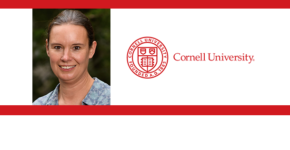 On Cornell University Week: Getting people to reconsider their choices can be tricky.
On Cornell University Week: Getting people to reconsider their choices can be tricky.
Michele Belot, professor of economics, discusses why.
Michèle Belot is Professor of Economics at Cornell University. Her recent research focuses on behavioral change in areas such as job search, dietary habits and political opinions. She has designed and tested interventions using randomized controlled trials, aimed at encouraging behavioral change.
She is the current President of the European Association of Labour Economists. She has published in journals such as the Review of Economic Studies, the Review of Economics and Statistics, the Journal of Health Economics, Proceedings of the National Academy of Science and The Economic Journal.
She received her PhD in Economics from Tilburg University in 2003 and has held previous academic positions at the University of Essex, the University of Oxford. the University of Edinburgh and the European University Institute.
How Do We Get People to Reconsider Their Choices and Behaviors?
The biggest challenges of the 21st century, such as climate change, obesity or job automation all share one thing in common: They are likely to impact deeply our ways of life, and we will need to adapt. We know from decades of research in social sciences that we tend to be anxious about change. We dislike questioning our habits and our way of thinking. Political polarization is another demonstration of how hard it is for us to be open-minded.
In our recent research, we found surprising results. We found that when we presented people with options in a non-coercive way, they were willing to consider them and even reported feeling positive about making a different choice.
We conducted studies in different domains of life. One study was about political polarization. People had the opportunity to listen to others who think differently from them on issues such as immigration, abortion or gun laws. Ninety percent of them chose to do so, and ten percent reported changing their view after listening. Another study targeted people searching for jobs in occupations threatened by automation. We made suggestions of alternative occupations to consider. The majority considered them and experienced better labor market outcomes as a result.
In psychology there is a well-known concept of reactance, which is that people become upset when their freedom is threatened or eliminated. In that context, “telling people what to do” is often counterproductive. Our research shows that reactance can be mitigated by altering how change is induced: suggesting alternative ways may be more effective than inducing them in a more forceful manner.
